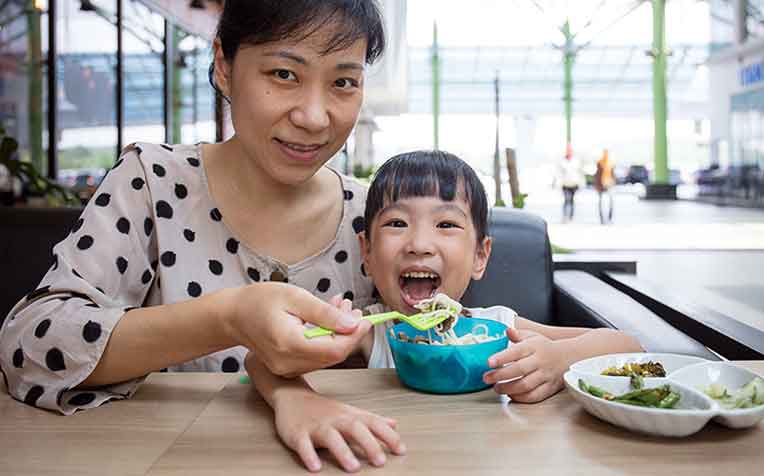
There's no denying it – cultivating healthy eating habits in a child is important as eating habits initiated when young can be lifelong. Yet, some of the eating habits that parents think are healthy or unhealthy may turn out to be misconceptions. Jasly Koo, Dietitian, from the
Department of Nutrition and Dietetics at
KK Women's and Children's Hospital (KKH), a member of the
SingHealth group, shares some of the common food myths and the actual truths.
Misconception 1: Healthy meals have to be 'proper' meals consisting of rice with meat and vegetables
Truth: Noodles, pasta, potatoes, chappati and even bread can be consumed instead of rice.
Related article:
How to choose the healthiest bread
Misconception 2: Healthy meals have to be cooked without adding any oil
Truth: In fact, until the age of two, there is no restriction on fat, as fat is a concentrated source of energy, providing calories to fuel the growth and activity needs of a young, growing child.
So long as a healthy oil is used, (i.e. monounsaturated and polyunsaturated oils e.g. olive, canola, rice bran, sunflower, sesame, peanut, corn) parents can add oil to pan-fry or stir-fry foods rather than just boiling everything in a soup.
Related article:
Top foods for studying well and staying alert
Misconception 3: Wholegrain foods like wholemeal bread, oats, brown rice must be given for all meals
Truth: Whilst wholegrains are important for good health, too much wholegrains can affect a young child's appetite as wholegrains are high in fibre.
So, if your child has a small appetite, you may wish to give only a quarter to half a serving of rice and alternatives as wholegrains.
Misconception 4: Fruit juice is as nutritious as fresh fruit
Truth: For children above one year of age, 100% fruit juice can be given as ½ of the fruit recommendations, but it is still best to give fresh fruit as the fibre content is reduced by juicing. Fibre is important for regular bowel movements, and also for satiety and weight control. Excessive juice consumption is also associated with diarrhoea, flatulence, abdominal distention and tooth decay.
Related article:
Children ages 1 to 12 – Recommended servings for a balanced meal
--
Articles on
HealthXchange.sg are meant for informational purposes only and cannot replace professional surgical, medical or health advice, examination, diagnosis or treatment.